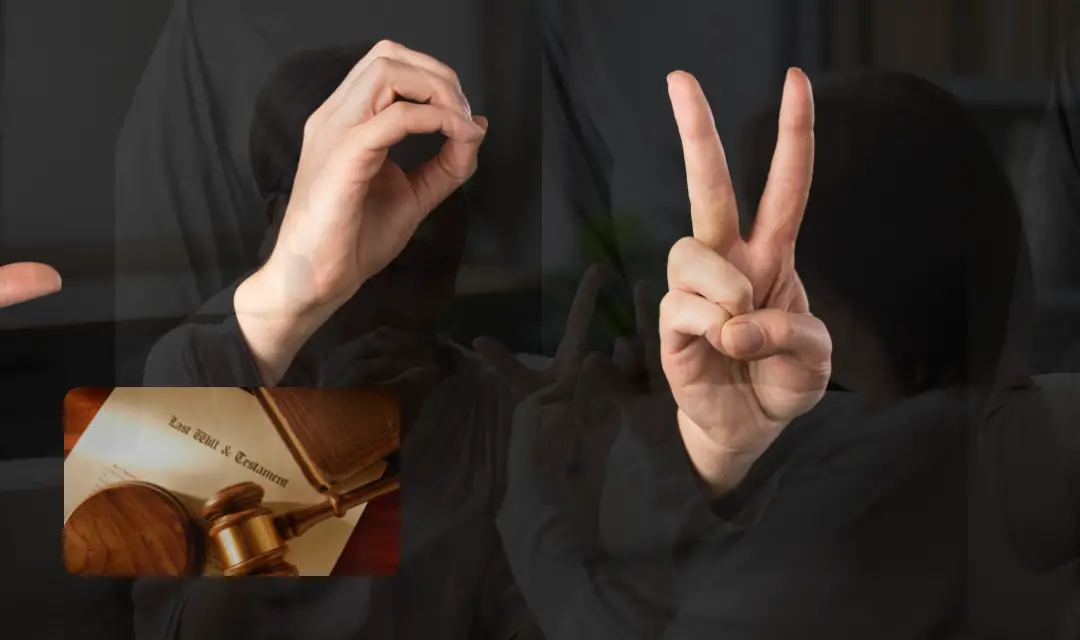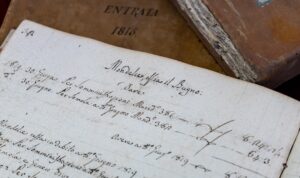Can a disabled person make a will and last testament? He may do so, as we shall discuss below. The number of persons with those disabilities is indisputably immense, considering the fact that there are still plenty of individuals suffering with the same conditions that are not yet listed. We are not wet behind the ears by the fact that group of people with disabilities exercise limited rights and privileges.
In the Philippines, there are about 121,000 listed deaf and deaf-mute individuals according to National Statistics Office report in 2000 and about 272,527 listed blind or visually impaired individuals according to Philippines Registry for Persons with Disability – DOH report in January 2022.
Can a disabled person make a will?
Most of the activities that a fully abled man can do may not be suitable to a person with disability. Take for example that a blind, deaf or dumb person is prohibited to stand as a credible witness in a will.1 Speaking of a last will and testament, if person with such disabilities are not allowed by law to be a witness in the execution of a will, does it follow that they are also ineligible to make a will?
Civil Code provides that every will shall be in writing and executed in a language or dialect known to the testator.2 The provision seems to be plain and simple most especially when the testator does not have any other special or notable circumstance that shall be considered.
However, have you ever wondered how a will is executed if the testator is deaf, deaf-mute, or blind? Where do these circumstances fall under – what kind of will? Does the law provides for the additional requirements should the testator be of those that have been mentioned?
Deaf, Mute, and Blind
To begin with, deaf, deaf-mute, and blind are absolutely allowed to make a will. In a testamentary succession, all persons who are not expressly prohibited by law, 18 years old and above and of sound mind may make a will.3
The law is clear with the specific conditions and qualifications of a person to create a will. The certain inability of a person to hear, to speak and to see does not bar their rights and capacity to create a will. As postulated in jurisprudence, the mere fact that a testator is blind does not render him incompetent to make a will.
While Section 620 of the Civil Procedure [Now Article 8204 of the Civil Code] prohibits blind persons from acting as witnesses to the execution of a will, no limitation is placed upon testamentary capacity except that of age and soundness of mind, no presumption of incapacity arises from blindness alone.5
Such wills executed by deaf, deaf-mute, and blind falls under the type of will which is called Ordinary or Attested will or likewise known as Notarial wills. Deaf, mute, and blind testator are not prohibited from making a holographic will.6
Notarial will
Commonly, for a notarial will to be valid, the law7 provides that:
1] it should be in writing;
2]executed in a language or dialect known to the testator;
3] subscribed by the testator himself or by the testator’s name written by some other person in his presence and under his express direction
4] duly signed by the testator at the end thereof in the presence of witnesses;
5] attested and signed by at least three [3] credible witnesses in the presence of the testator and of one another;
6] signed at each and every page by the testator or by the person requested by him to write its name, and by instrumental witnesses in the presence of each other, on the left margin8;
7] each and every page of the will must be numbered correlatively in letters placed on the upper part of each page 9;
8] must contain an attestation clause
9] and must be acknowledged before a notary public.
Special requirements
Those mentioned requirements are wanting of additional essentials in special cases. Articles 807 and 808 of the Civil Code provide for the additional requirements should the testator is deaf, a deaf-mute, or blind.
If the testator is deaf or deaf-mute, he must personally read the will if he is able to do so, otherwise, he shall designate two (2) persons to read the same and communicate to him, in some practicable manner, the contents thereof.
If the testator is blind, the law requires that the will shall be read to him twice, once by one of the subscribing witnesses, and again by the notary public before whom it is acknowledged.
You may be wondering now why the will has to be read twice to a blind testator. In Garcia vs. Vasquez10 the Court explains:
The rationale behind the requirement of reading the will to a testator if he is blind or incapable of reading the will himself. The aim is to make the provisions of the will known to him, so that he may be able to object if they are not in accordance with his wishes. The goal of the law is to make sure that the constitutions of the will are properly carried on and understood by the testator who has physical incapacities. In this sense, the dispositions of the provisions of the will are truly reflective of his desires, and that the witnesses have to act within the range of the testator’s other senses.11
Illiterates
Now having been known the legal cornerstone of execution of will by deaf, deaf-mute, and blind, you may be wondering now how about those illiterate? With the same rationale behind the requirement imposed by law in blind testator, the Court extended the same to those illiterate.
Exceptions | Peculiar circumstances
In the case of Alvarado vs. Gaviola,12 the petitioner opposed the petition for the probate of the notarial will filed by private respondents upon the death of testator Alvarado on the ground:
1] that the will sought to be probated was not executed and attested as required by law; that the testator was insane or otherwise mentally incapacitated to make a will at the time of its execution due to senility and old age;13
2] that the will was executed under duress, or influence of fear or threats;
3] that it was procured by undue and improper pressure and influence on the part of the beneficiary who stands to get the lion’s share of the testator’s estate; and
4] lastly, that the signature of the testator is procured by fraud or trick.
On appeal, petitioner contends that the deceased was blind within the meaning of the law at the time his “Huling Habilin” was executed and that the reading requirement under Article 808 of the Civil Code was not complied with.
The Court agrees with the petitioner’s contention and states that regardless of respondent’s staunch contention that the testator was still capable of reading at the time his will and codicil were prepared, the fact remains, as testified by witnesses, that testator Alvarado did not do so because of his “poor”, “defective”, or “blurred” vision, making it necessary for private respondent to do the actual reading for him.
The Court also finds support in the pronouncement in Garcia vs. Vasquez14 as to scope of the term “blindness” as used in Article 808 as previously discussed in the preceding paragraph. The aforementioned case makes it evident that Art. 808 apply to anyone who is incapable of reading their wills for any reason, not just blind testators.
Since testator Alvarado was unable to read the final drafts of his will and codicil on the separate occasions of their execution due to his “poor”, “defective”, or “blurred” vision, there is no other course for the court but to conclude that the testator had no way of knowing whether the Lawyer who had written the will and codicil followed his directions unless the contents were given to him.
In a different angle, another similar circumstance of applicability and inapplicability of Article 808 was elucidated by the court. But this time, though the testator was evidently disabled, the Court ruled that the basic requirements were present. Hence the validity of the will was sustained.
In the case of Guia vs. Cosico15, respondents opposed the petition for probate of Cecilia’s will filed by petitioner alleging that the formalities for the execution of a valid will under Articles 805 to 809 of the Civil Code were not complied with.
They also contends that Cecilia was not mentally capacitated at the time she purportedly executed her will; that she signed it under duress and improper pressure from the beneficiary; that the alleged Cecilia’s thumbprint was procured through fraud; and that Cecilia did not intend to make the subject document as her last will and testament.
In the aforementioned case, the trial court ruled that while Cecilia is considered as lumpo, she knew the nature of her properties for disposition and the character of her testamentary act. The trial court also emphasized that Cecilia is indeed in her sound mind, negating the respondents contention due to lack of proof.
Nevertheless, the appellate court reversed the decision of the trial court ruling that the additional requirements in Article 808 were not observed during the execution of the will, anchoring the same conviction in the case of Alvarado vs. Gaviola16
The Supreme Court shed light to the foregoing by ruling against the notion of the appellate court. The court emphasized that the extended application of Article 808 in Alvarado case recognizes exception thereof. Such exception is enshrined under substantial compliance rule.
As highlighted by the Supreme Court, Article 808, while intended to shield the testator against various forms of deceit and cunning, it is never meant to be so strict and unyielding as to nullify testamentary privilege. The threat that Article 808 is intended to avert in this case is unquestionably inexistent.
Final thoughts
In fine, the provisions of the Civil Code covering the rules on testamentary succession and creation of a will by a deaf, deaf-mute, blind, and as extension, illiterate individuals, aim to protect the interest of our beloved fellows with special needs.
This will give them the freedom to enjoy their rights in the proper disposition of their properties, free from any form of abuse, deceit, and manipulation of those dominant-abled man or any other abuser in any form.
At last, if your words cannot be spoken, your voice cannot be heard, and your intentions cannot be seen, let the law aid you as it always has your back, ready to serve as the voice of the voiceless, sound despite silence, and light beyond darkness.
- Article 820, Civil Code[↩]
- See Article 804, Civil Code[↩]
- Articles 796 – 798, Civil Code[↩]
- Article 820, Civil Code[↩]
- See Avelino vs. De la Cruz, G.R. No. 6322, February 21, 1912[↩]
- See Civil Code, Article 810. A person may execute a holographic will which must be entirely written, dated, and signed by the hand of the testator himself. It is subject to no other form, and may be made in or out of the Philippines, and need not be witnessed.[↩]
- See Articles 804-806, Civil Code[↩]
- location of marginal signature on the left margin is directory, but marginal signature is mandatory[↩]
- page number on each and every page is mandatory, its location on upper part is directory[↩]
- G.R. No. L-26615, April 30, 1970[↩]
- Ibid.[↩]
- G.R. No. 74695, September 14, 1993[↩]
- [↩]
- Supra.[↩]
- G.R. No. 246997, May 5, 2021[↩]
- Supra.[↩]




